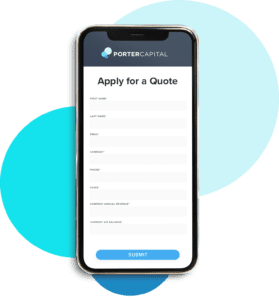Table of Contents - Quick Links
Your business depends on consistent cash flow to keep operations running smoothly and customers satisfied. Extending your customers a line of credit using accounts receivable can help with cash flow, but it requires diligent follow-up and dedicated attention to be effective.
Selling your accounts receivable is a common alternate financing option to keep your cash flow constant. Selling receivables to a factoring company will bring expertise and dedication to help your company take advantage of new business opportunities and growth.
Understanding Accounts Receivable
Accounts receivable is what your customers owe you after you deliver your services or goods. They indicate that you have made a sale on credit but have not yet collected payment for it. Accounts receivable are a part of your working capital, acting as assets since they are expected to bring revenue in the near future. Analyzing your accounts receivable will help you understand your financial stability and liquidity.
Examples of Accounts Receivable
Accounts receivable are a common aspect of many businesses. A few industries that often use accounts receivable include:
- Staffing: A staffing agency sometimes has to wait months to see a payment from clients, but must continue to have enough cash to cover payroll.
- Distribution: Many distributors and wholesalers wait weeks to months to receive payment for their services but the demand for more inventory is constant.
- Manufacturing: A company may manufacture a product, such as furniture, automobiles, or clothing, and sell it to a retailer that will pay them for the goods after they have received them.
- Service Companies: Service providers work with numerous customers and each may have a unique payment schedule, keeping the service provider waiting 30-90 days for payment.
- Health and Wellness: Companies may begin to mass produce products for big-box retailers and then have to wait for months to get paid but still need supplies to keep up operations.
Selling Your Accounts Receivable?
Make the most out of your business’s accounts receivables by leveraging Porter Capital’s factoring services.
Challenges of Managing Accounts Receivable
While accounts receivable may be a vital component of your business, they also pose a level of risk. With outstanding invoices, your company may face challenges such as:
- Running out of necessary funds to maintain business functions
- Rising costs of transactions
- Decreasing customer satisfaction
- Needing to write off outstanding receivables as bad debt
- Finding more errors on bills and invoices
- Slowing operations and production
- Missing revenue targets
- Falling behind competitors
- Worrying about making payroll
Overcome Challenges by Selling Your Accounts Receivable
The sale of your accounts receivable allows your business to maintain dependable cash flow and avoid the problems of managing receivables. Two ways to sell your receivables include:
- Factoring: This method involves selling your open invoices to a factoring company that gives you a cash advance while they collect your accounts receivable. You can sell some or all of your invoices, with or without recourse. Selling with recourse is when your business buys back the invoices your factoring company is unable to collect payment from, while non-recourse is when the factoring company assumes the risk of no payment themselves.
- Accounts receivable financing: This option is similar to a bank loan, but it is backed by a pledge of business assets connected with accounts receivable rather than collateral like real estate or equipment. Companies must submit all accounts receivable as collateral to the financing company. Accounts receivable financing is ideal when you plan to transition to a traditional bank line of credit in the near future.
The Benefits of Selling Accounts Receivable
Selling your accounts receivable opens many options for your business. It can provide a quick and effective solution to your cash flow problems, enabling you to enjoy a steady revenue stream that helps you pay essential bills and invest in growth.
1. Improved Cash Flow
Selling your accounts receivable helps improve your cash flow by getting you the money you need for your business right when you need it. Instead of waiting for your customers to pay you before continuing or growing operations, you have control over your timeline and growth. Factoring companies help release the cash tied up in your accounts receivable so you can continue production and expansion efforts.
Selling receivables gives you the funds to perform essential tasks such as:
- Hiring and retaining staff
- Buying and maintaining equipment
- Purchasing inventory
- Paying for subscriptions, rent, utilities and other important bills
- Accepting projects to grow your business
2. Reduced Risk
You can enjoy reduced risk and greater confidence when you sell recurring invoices with reliable paying customers. You know your customers will pay, giving you and your factoring company confidence to move forward.
Factoring receivables gives you access to working capital without adding debt. This financing option differs from loans and equity that require collateral or changes in ownership. Instead of harming your balance sheet, selling receivables benefits your business and gives you access to necessary funds. You can get cash in a shorter time frame while avoiding risk and personal liability.
3. Increased Flexibility
Factoring companies take on the work of managing and collecting your receivables, saving you time and money. Their work gives you the flexibility to focus on growing your business and providing quality customer service. Instead of hiring someone in-house to work on your accounts receivable, you can let a professional factoring company handle the details and bring you all the benefits.
When you factor your invoices, you decide how often and how much you want to factor. You can grow and adjust your business on your own time by selling what you need when necessary. Selling accounts receivable provides quicker access to funds than traditional financing options, enabling you to pay for essential expenses or invest in opportunities.
4. Greater Customer Satisfaction
Allowing a factoring company to manage your accounts receivable brings a level of organization that benefits your customers just as much as it benefits your enterprise. Factoring companies can streamline payment processes and promote clear communication so you and your customers understand what to expect. They ensure your customers get the products and services they need while you receive the money you deserve.
Some customers need time to collect the funds to pay you. Using a factoring company can help preserve your relationships with these customers by giving them enough time to pay and providing you with enough cash to maintain business operations.
Consistent cash flow enables your business to deliver more value to customers. You can hire top talent to better serve them or invest in high-quality equipment that helps you bring quicker solutions to satisfy your customers’ needs. As your company grows and develops into a powerful enterprise, your clients will enjoy benefits that will increase their loyalty and satisfaction.
When to Consider Selling Your Accounts Receivable
You should consider selling receivables when you have concerns about your cash flow. Whether you need a solution to fill the gap between profits and rapid growth or want a more convenient alternative to a bank loan, factoring your accounts receivable can help.
Factoring is an ideal option when you have:
- Slow-paying customers: Your factoring company will handle the expenses and efforts of tracking down customers and collecting payment, enabling you to maintain relationships, enjoy steady cash flow and save time and money.
- Seasonal fluctuations: If your business experiences cash flow peaks and dips throughout the year, you can smooth them out with help and consistency from a factoring company.
- Limited access to funds: If you have been struggling to find funding for your operations through financing methods such as loans or a business line of credit, selling receivables may be the quick and easy solution you need.
Selling your accounts receivable can also help when you want to capitalize on growth opportunities. Your business may have enough cash flow to maintain its current processes, but if you’re going to expand your operations or hire more team members, your business may benefit from selling invoices to a third party. Selling receivables will give you the upfront cash you need to grow.
How to Sell Accounts Receivable
Learn how to sell your accounts receivable so you can enjoy all the benefits this financing option brings.
Find an Accounts Receivable Factoring Company
The first step to selling your accounts receivable is to find a trustworthy factoring company. Many dishonest factoring companies have hidden fees and heavy-handed processes that will limit your growth instead of encourage it. A dependable factoring company will have extensive experience with factoring, bringing the knowledge and expertise you need to enjoy the process.
They will also respect your customers, communicating courteously and promptly to help preserve your relationships. When searching for a company to work with, learn about their contact efforts with customers and their commitment to communicating with you.
Meet Requirements
Your factoring company will consider a few aspects of your accounts receivable before purchasing your invoices. A couple of requirements you must meet for most factoring companies to accept your receivables include:
- Creditworthy customers: Factoring companies will evaluate your customers’ credit ratings to see if taking on their invoices is worth the risk. The more reliable your customers are, the more likely a factoring company is to take on your accounts receivable.
- Quality receivables: Your factoring company will look at the amount of time your receivables have been outstanding and their value to determine if they are worth purchasing. Factoring companies will check that each factor is finished or delivered.
Complete the Accounts Receivable Factoring Process
Factoring typically follows a simple process:
- You determine which invoices you want to sell to a factoring company, then apply for factoring services.
- Your factoring company will evaluate your customers and accounts receivables, deciding if they will purchase the invoices.
- The factoring company then buys your invoices, giving you a percentage upfront.
- Your customers pay invoice amounts to your factoring company.
- The factoring company pays you the remainder due after your customers have paid and they have subtracted their fee.
Sell Your Accounts Receivable Through Factoring With Porter Capital
If your business is searching for a reliable solution to improve cash flow, selling your accounts receivable may be the right option. When you sell your invoices, you can improve your operations, expand your business and enjoy consistent funding.
Porter Capital is committed to your business’s success, so you can trust us to help you find the financial solution best suited to your needs. Our application process is simple, and once you complete it, we can fund you in as little as 24 hours. Contact us today to see how factoring can transform your business and capabilities!




